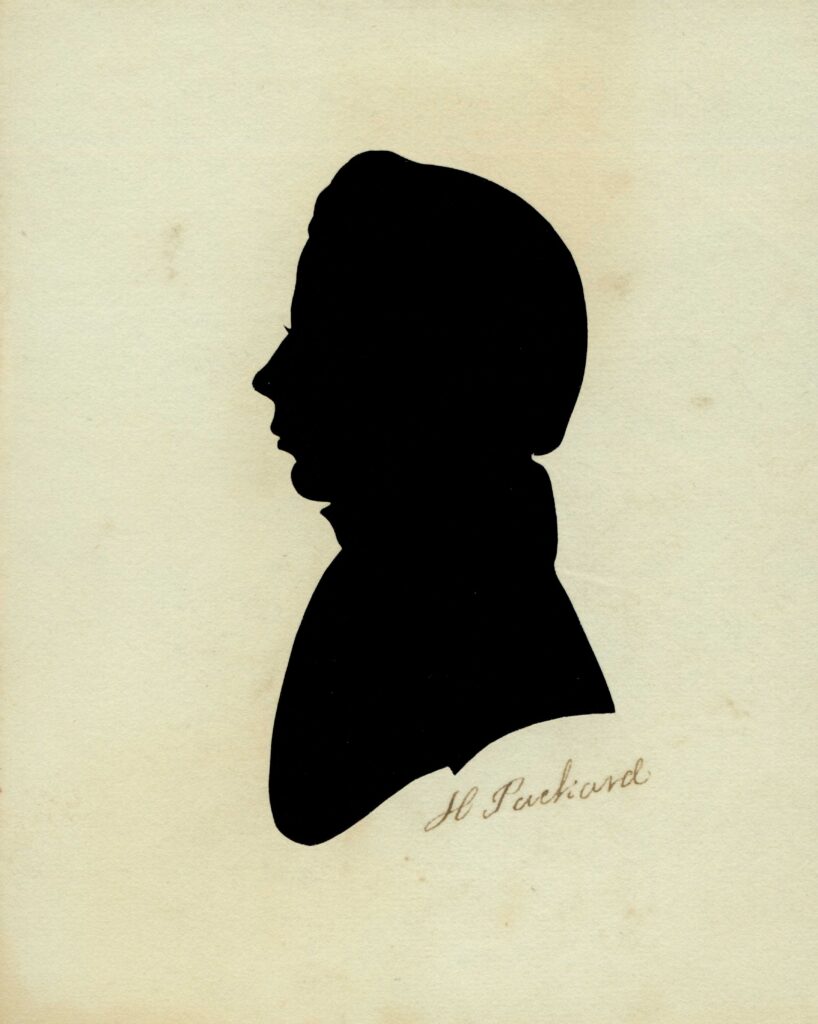
The Devoted Teacher
Hezekiah Packard was born in 1805 in Wiscasset, Maine. Packard was likely named for his father, the Dr. Reverend Hezekiah Packard. Packard Sr. was a Revolutionary War veteran, a friend of President John Quincy Adams, and a well regarded minister. The Reverend was known for his “physical and mental vigor” while as a student at Harvard and he expected the same commitment from his six sons. Thus Packard Sr. was a “strict disciplinarian” who trained his children to “work continuously.” However, Packard’s father was not the parent to instill a passion for education into Hezekiah. His mother, Mary Spring Packard, had scholarly interests of her own and would often read lines of the Odyssey as she wound wool for her carding machine. This learning-focused upbringing would have a great effect on Mary and Hezekiah’s children. All six sons would attend Bowdoin, the college where Packard Sr. was a trustee. Unfortunately, one of Packard’s brothers would die his junior year at Bowdoin, which undoubtedly was a great loss to the family. Hezekiah’s eldest brother, Alpheus Spring Packard remained at Bowdoin and became one of the most influential and well-regarded professors in the college’s history. Another brother, Joseph Packard, became a respected professor of religion and author in Virginia. With the examples of his parents and brothers, Hezekiah clearly had a lot to live up to.
Hezekiah Packard matriculated at Bowdoin around the age of sixteen. Upon entering the college Packard was likely already familiar with his classmate Alden Boynton. Boynton was a fellow resident of Wiscasset and a former tutee of Packard’s brother Alpheus. Packard is not listed as living at Bowdoin or in Brunswick his first year, and it is possible that he may have done his studies from home. During his upperclassmen years Packard lived in different rooms in Maine Hall. Senior year he shared a room with Edward Joseph Vose. For activities, Packard was a member of the Peucinian Society. Perhaps because of his strict upbringing, Packard was an exceptionally well behaved student. Unlike the vast majority of his peers, Packard was never fined or reprimanded by Bowdoin’s Executive Government. The reverend’s son also proved to be one of the better scholars in his class. His junior year he was asked to give a Latin dialogue about Cicero with George Barrell Cheever. At Commencement, Packard lead a discussion on “The civil liberty enjoyed by a citizen of Athens.” He was elected to Phi Beta Kappa and graduated with the tenth rank in his class alongside his roommate Vose.
After completing his education, Packard decided to assist in the education of others. From 1825 to 1827, he worked as a teacher in Warren, Maine. He also developed a passion for physics, which he would independently study. In 1827, Packard became the Principal of Thornton Academy. While in Saco, Packard met Charlotte Montgomery of Haverhill, New Hampshire, who he married in 1833. In 1835, Packard moved to Portland to teach at a private school for boys. He would later focus his attentions on female education and teach at a private Portland girl’s school. For Packard, teaching was more than a job, it was an act of love. His only other serious interest was the Congregationalist Church, of which he as an active member and officeholder. In 1856, Packard developed a bronchial affliction that forced him to quit his beloved educational career. Instead, he became a bookseller. His brother Alpheus reports that Packard also enjoyed popularity in this career because of “His literary attainments, his cordial manners, and his unswerving integrity.” Unfortunately, Packard’s bronchial disease never subsided and he eventually died of the illness in 1867, at the age of 61. He left behind his wife Charlotte, a son, and a daughter.